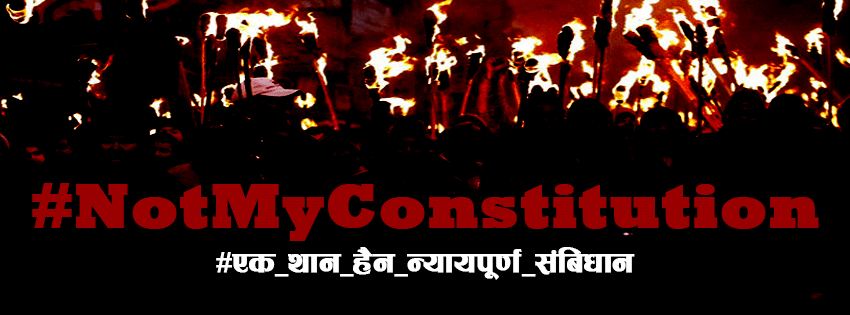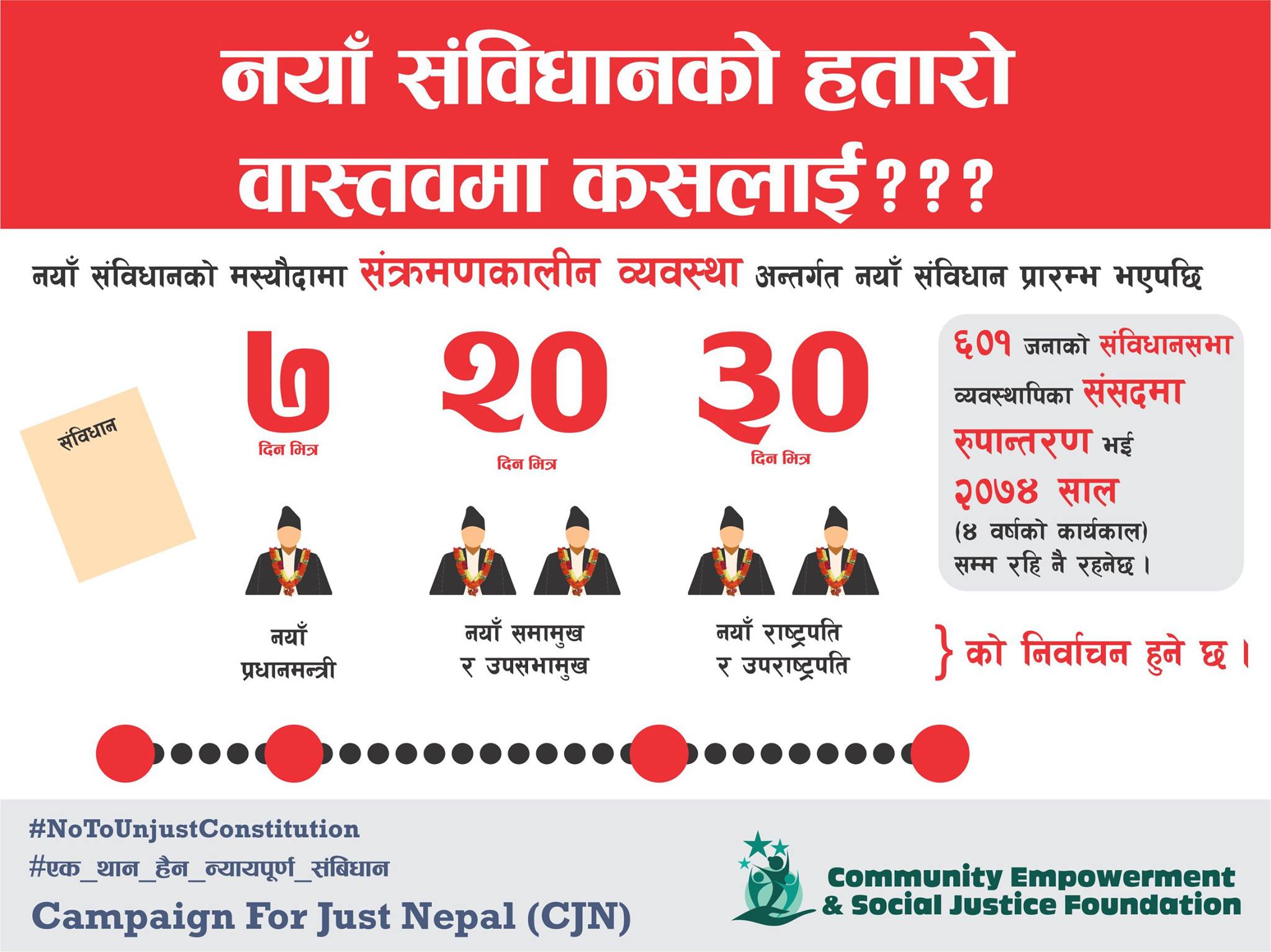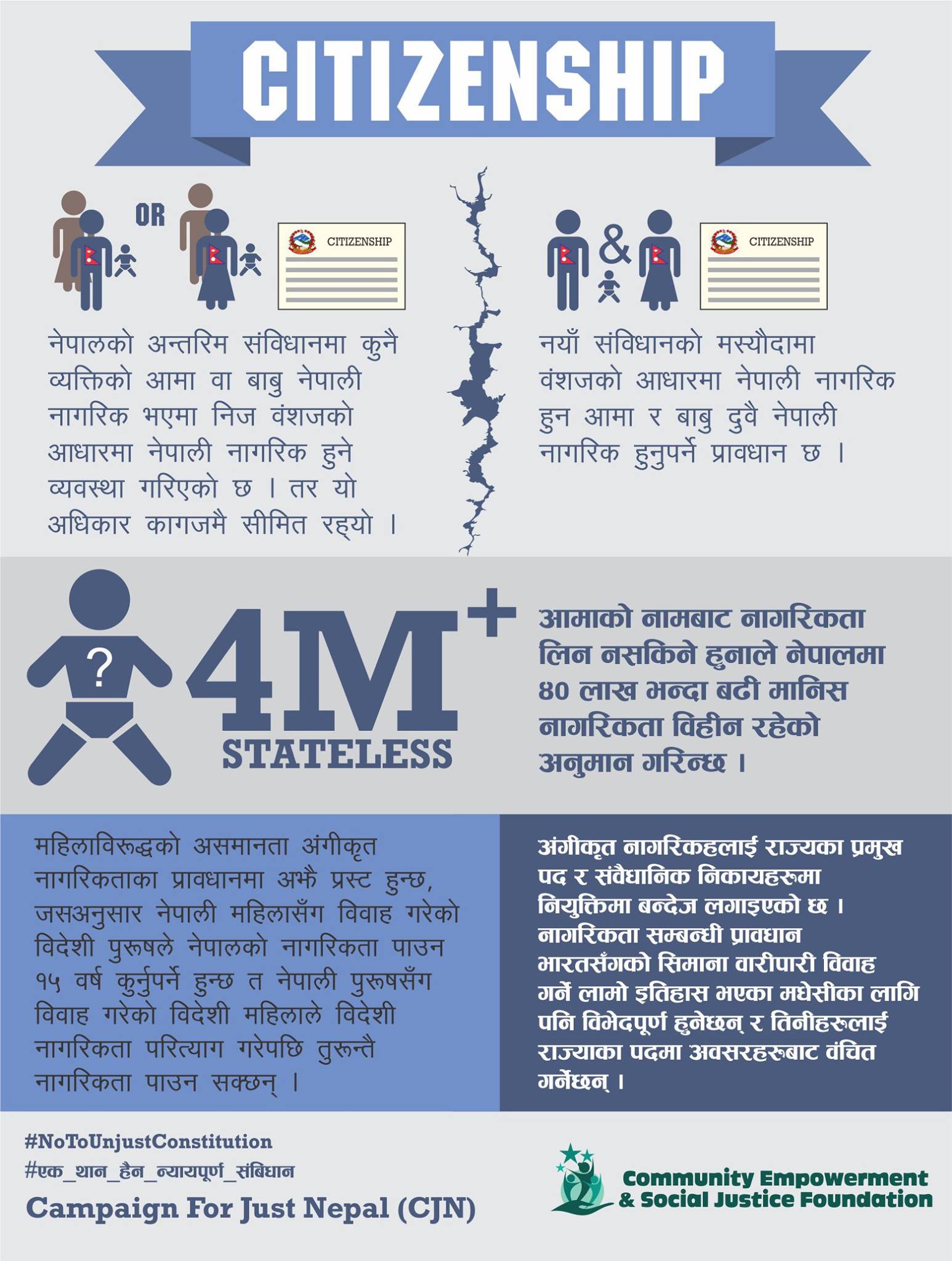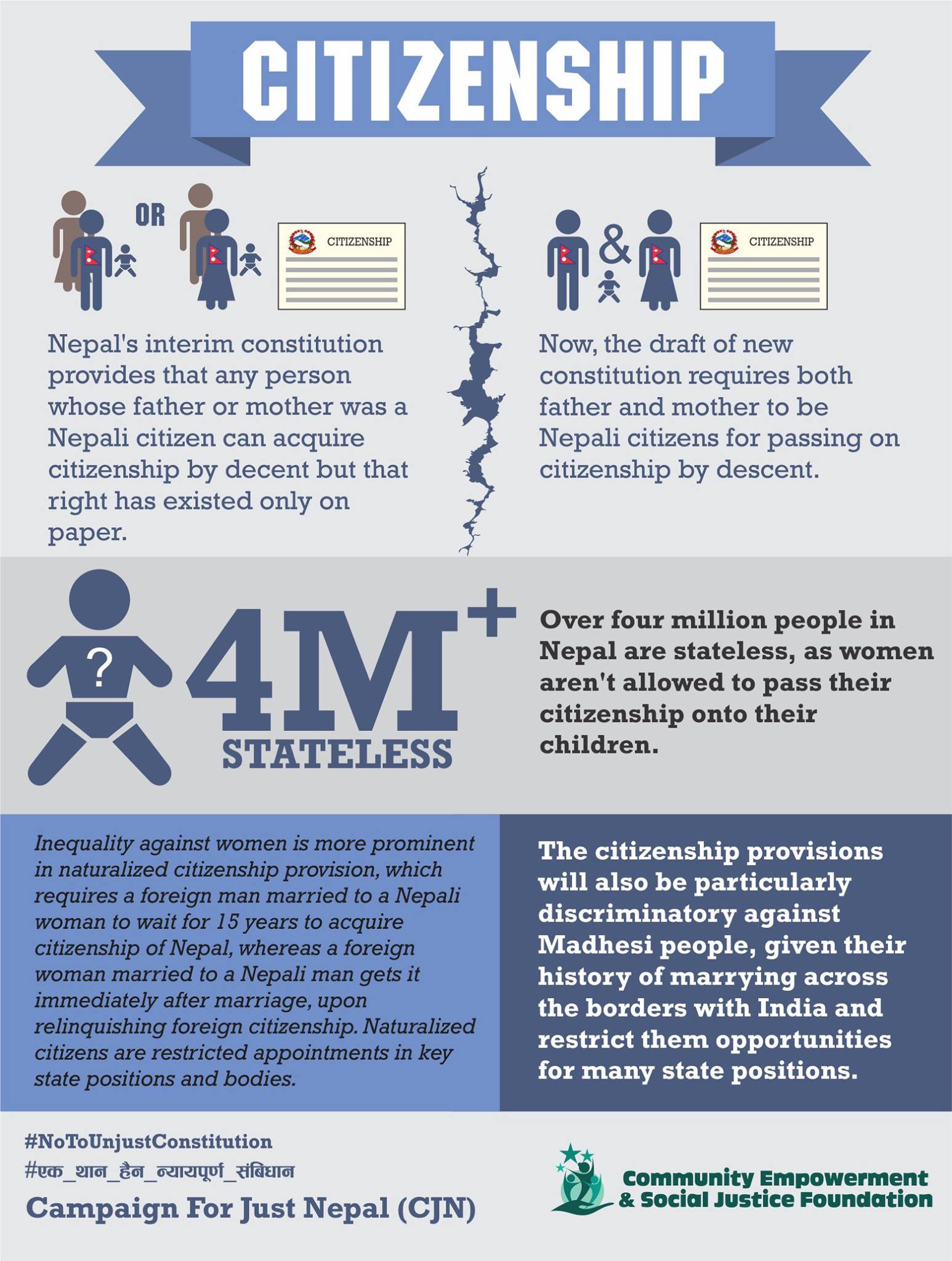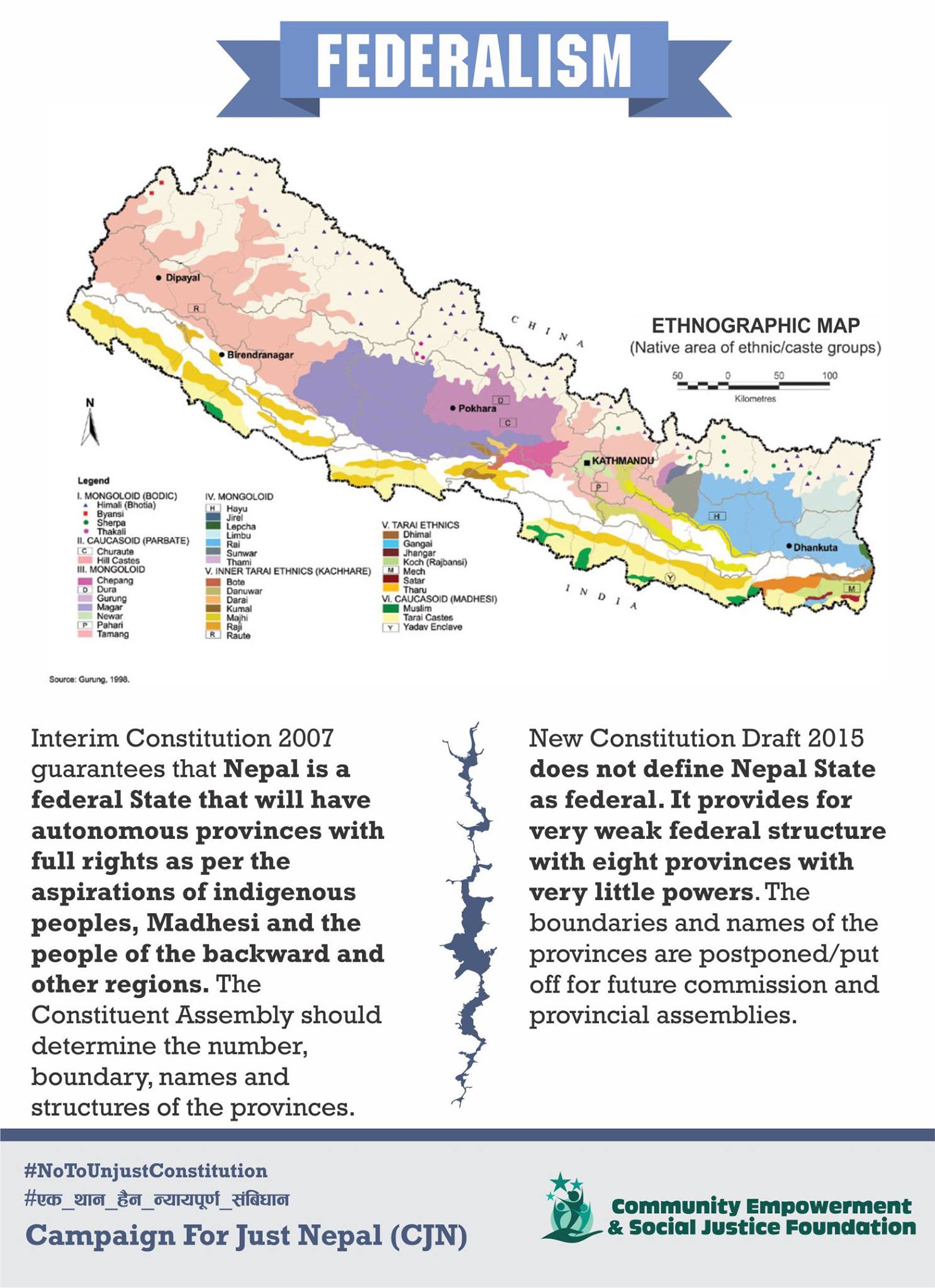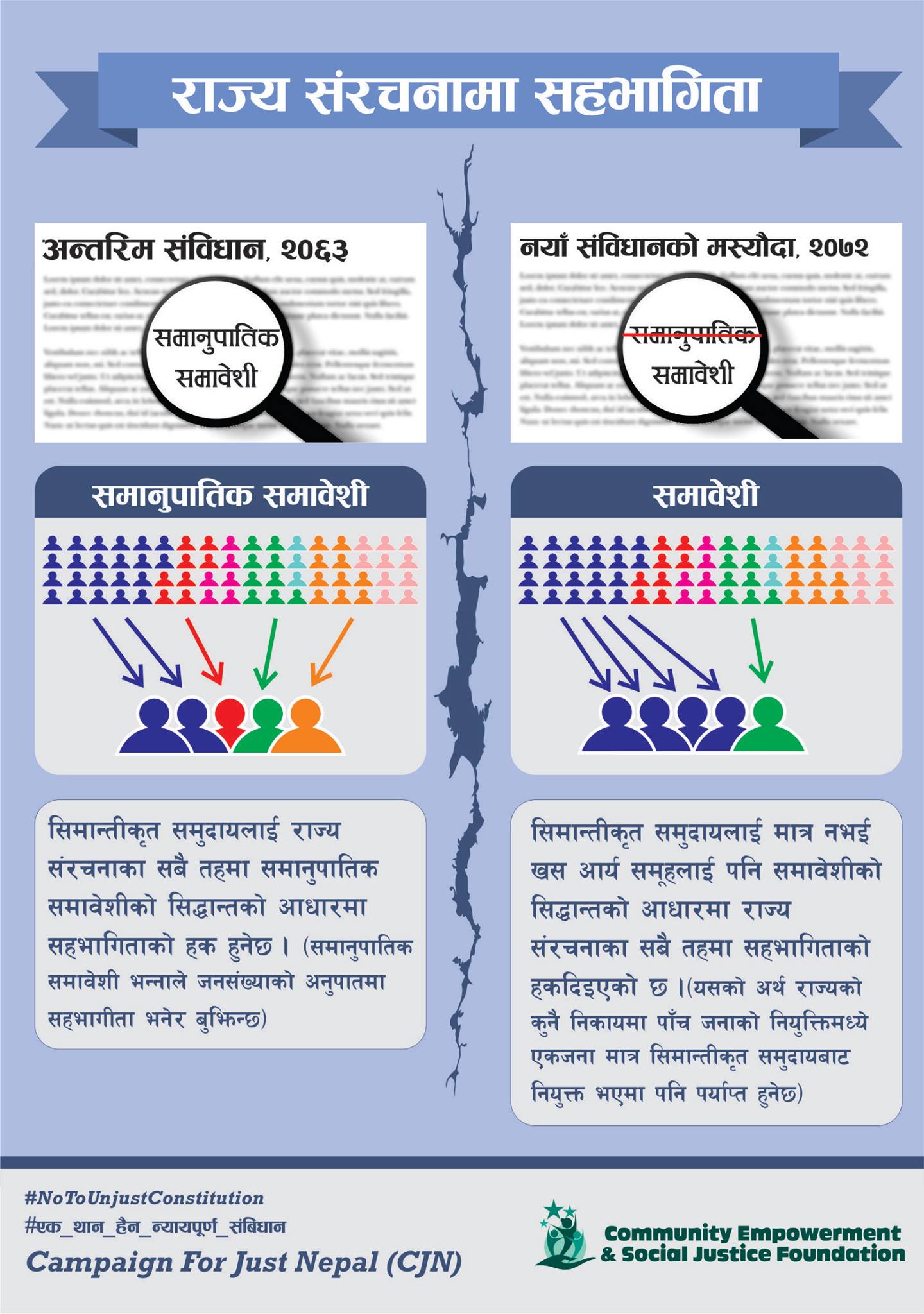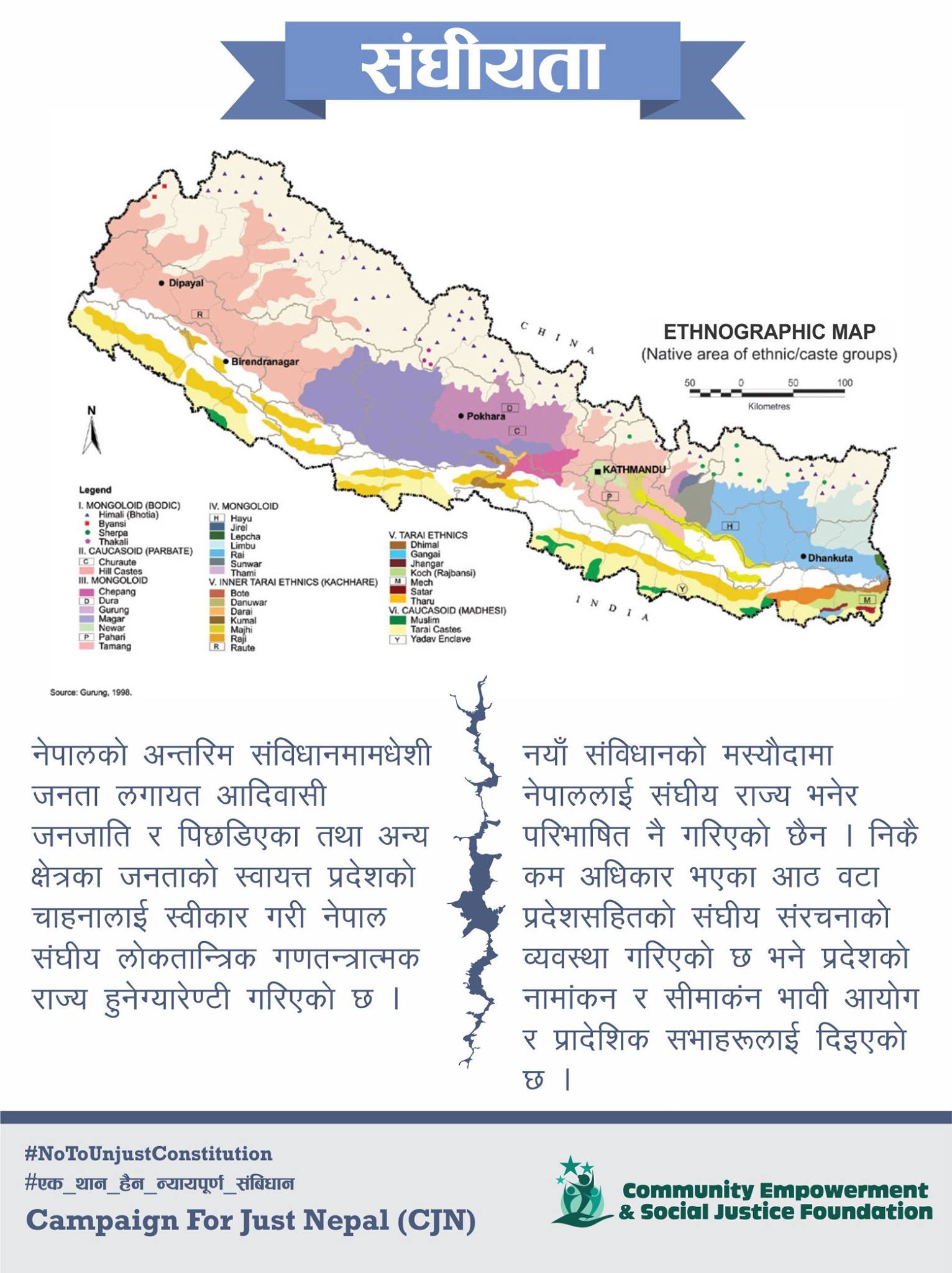Nepal’s Constituent Assembly is currently finalizing a new constitution through a “super-fast track” process. As a result, draft of new constitution was made public on 8 July. A minimal period of 15 days was provided to collect public opinion on the draft of new constitution while only two days are actually invested for public consultations.
The draft constitution reverses on many aspirations of marginalized groups of Nepal such as inclusion, secularism, federalism, equality and human rights. This violates the goals and ends of decade long armed insurgency and various movements that occurred in Nepal’s history.
Campaign for Just Nepal (CJN) has been pushing for a new constitution that ensures the rights and well-being of marginalized groups and overall population of Nepal. Such constitution is possible if you add your voice to the campaign.
Please send your suggestions to the Constituent Assembly.
Click here to send a pre written email
If the above link doesn’t work for you, please:
- Copy and paste the following text into a new email
- Or write your own message – the best option!And send your email to comt.crcs@gmail.com
And please copy CJN: campaign4justnepal@gmail.com
——
Honorable Chairperson
Constituent Assembly
Nepal
The Constituent Assembly is currently finalizing a new constitution through a “super-fast track” process. As a result, draft of new constitution was made public on 8 July. A minimal period of 15 days was provided to collect public opinion on the draft of new constitution while only two days are actually invested for public consultations.
The draft constitution reverses on many aspirations of marginalized groups of Nepal such as inclusion, secularism, federalism, equality and human rights. This violates the goals and ends of decade long armed insurgency and various movements that occurred in Nepal’s history.
We thus call on the Constituent Assembly to
1. Provide adequate prior information and time for collection of public opinion
2. Make arrangements to publish draft of new constitution and related information in understandable native languages and collect opinion in native languages
3. Reaffirm, in the new constitution, right to participation of marginalized groups including women, indigenous nationalities, Madhesi, Dalits and persons with disabilities in all levels and agencies of state structure on the basis of proportional inclusion as per population as provided in Nepal’s Interim Constitution
4. Reaffirm the provision of the Interim Constitution to make special provisions for socially marginalized groups including women, indigenous nationalities, Madhesi, Dalits and persons with disabilities as well as persons of economically disadvantaged class for employment in civil service and other government agencies and social sectors such as education and health (dominant Khas-Arya people have also been included among groups from whom such special provisions can be made in the new constitution draft, which renders special treatment possible for all and thus meaningless)
5. Institutionalize the principle of secularism through provisions such as changing national animal to one-horned rhino in the new constitution
6. Determine the federal structure of Nepal comprising autonomous provinces with full rights through the current Constituent Assembly itself as per the Interim Constitution and reports of the State Restructuring Committee of former CA and State Restructuring Commission
7. Provide for multilingual policy to use native languages of Nepal as official language in central and provincial governments in the new constitution
8. Ensure the rights of indigenous peoples on lands, territories and resources and other matters as per the UN Declaration on the Rights of Indigenous Peoples (UNDRIP) and ILO Convention 169 in the new constitution
9. Provide for directly elected executive chiefs at local, provincial and federal governments in the new constitution
10. Provide for citizenship through mother and equal rights for women in parental property and remuneration in the new constitution
If the new constitution is promulgated without incorporating above suggestions, it will not be acceptable to majority of Nepal’s marginalized groups. We would like to caution the Assembly that such constitution can lead to further instability and conflict in the country.
Sincerely,

